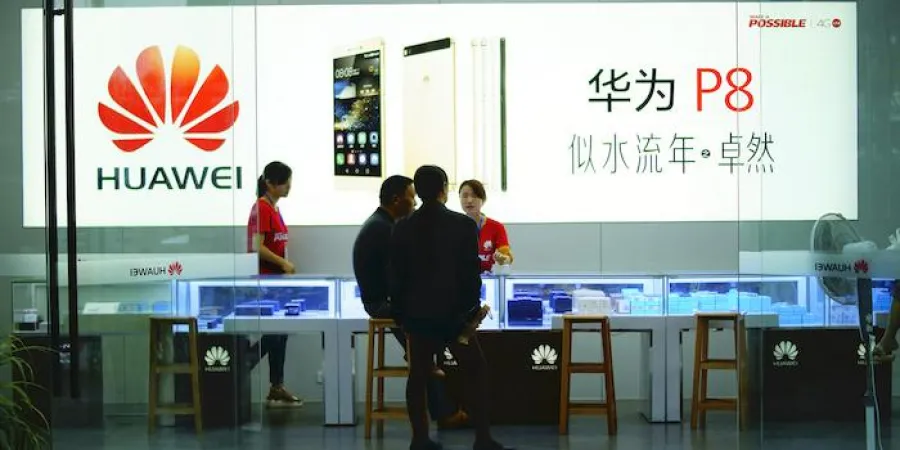Report: Chinese AI technologies pose threat to Africa
The Australian Strategic Policy Institute mapped out hundreds of Chinese technology initiatives throughout the continent, pointing out times in which advanced facial recognition technologies were used for political arrests with the pretense of maintaining public order
Mandi Kogosowski
| 12/05/2021
Beijing is a leading actor in the global competition over control of artificial intelligence markets and critical infrastructures in Africa, which poses a threat to the security and freedom of some of the citizens, according to a new report published by the Australian Strategic Policy Institute (ASPI).
During the past 20 years, China has been making a great amount of investment in developing advanced communications infrastructures and data surveillance capabilities, and is interested in taking the lead in developing these technologies among African countries. The "Belt and Road Initiative" of President Xi Jinping has been the leading conduit for China’s economic and technological expansion on the continent.
The ASPI researchers point out that in the eight years since the initiative was introduced, 40 out of 54 African countries signed cooperation agreements with China. The institute's cyber policy centre mapped out 266 Chinese technological initiatives across Africa, such as 5G infrastructure, data centres, smart-city projects, various education programs. Almost half of these initiatives are connected to Chinese tech giant Huawei, which is responsible for 70% of Africa’s 4G networks, and is currently the continent’s most popular mobile phone brand.
It should be mentioned that in 2018 the Chinese Communist Party was accused of spying on the African Union headquarters, and that Huawei (which denied the accusations) provided much of the telecommunications, data and digital equipment for the headquarters. But now, the researchers are turning the spotlight on the dangers of artificial intelligence and surveillance technology, and to the ways in which dark regimes use them for repression.
"Last year the Ugandan government used Huawei’s facial recognition systems to identify and arrest 836 suspected supporters of opposition leader Bobi Wine," the researchers wrote. "Supplied under the guise of law enforcement, Huawei AI in the country has been used for political purposes." (the authorities in Uganda claimed that they were only trying to quell the riots that broke out following Wine's arrest- M.K.)
"The same technology has been sold to Botswana, Egypt, Ghana, Kenya, Nigeria, South Africa and Zambia. Through its Safe City projects, Huawei has supplied surveillance technologies to 16 African countries, often funded by China Exim Bank loans," the researchers wrote.
"The ability of smart cities technologies to enhance and streamline service provision can obscure their invasiveness and advancement of political control, eliciting cooperation from users who are focused on immediate and tangible benefits."
The Australian Strategic Policy Institute mapped out hundreds of Chinese technology initiatives throughout the continent, pointing out times in which advanced facial recognition technologies were used for political arrests with the pretense of maintaining public order
Beijing is a leading actor in the global competition over control of artificial intelligence markets and critical infrastructures in Africa, which poses a threat to the security and freedom of some of the citizens, according to a new report published by the Australian Strategic Policy Institute (ASPI).
During the past 20 years, China has been making a great amount of investment in developing advanced communications infrastructures and data surveillance capabilities, and is interested in taking the lead in developing these technologies among African countries. The "Belt and Road Initiative" of President Xi Jinping has been the leading conduit for China’s economic and technological expansion on the continent.
The ASPI researchers point out that in the eight years since the initiative was introduced, 40 out of 54 African countries signed cooperation agreements with China. The institute's cyber policy centre mapped out 266 Chinese technological initiatives across Africa, such as 5G infrastructure, data centres, smart-city projects, various education programs. Almost half of these initiatives are connected to Chinese tech giant Huawei, which is responsible for 70% of Africa’s 4G networks, and is currently the continent’s most popular mobile phone brand.
It should be mentioned that in 2018 the Chinese Communist Party was accused of spying on the African Union headquarters, and that Huawei (which denied the accusations) provided much of the telecommunications, data and digital equipment for the headquarters. But now, the researchers are turning the spotlight on the dangers of artificial intelligence and surveillance technology, and to the ways in which dark regimes use them for repression.
"Last year the Ugandan government used Huawei’s facial recognition systems to identify and arrest 836 suspected supporters of opposition leader Bobi Wine," the researchers wrote. "Supplied under the guise of law enforcement, Huawei AI in the country has been used for political purposes." (the authorities in Uganda claimed that they were only trying to quell the riots that broke out following Wine's arrest- M.K.)
"The same technology has been sold to Botswana, Egypt, Ghana, Kenya, Nigeria, South Africa and Zambia. Through its Safe City projects, Huawei has supplied surveillance technologies to 16 African countries, often funded by China Exim Bank loans," the researchers wrote.
"The ability of smart cities technologies to enhance and streamline service provision can obscure their invasiveness and advancement of political control, eliciting cooperation from users who are focused on immediate and tangible benefits."



